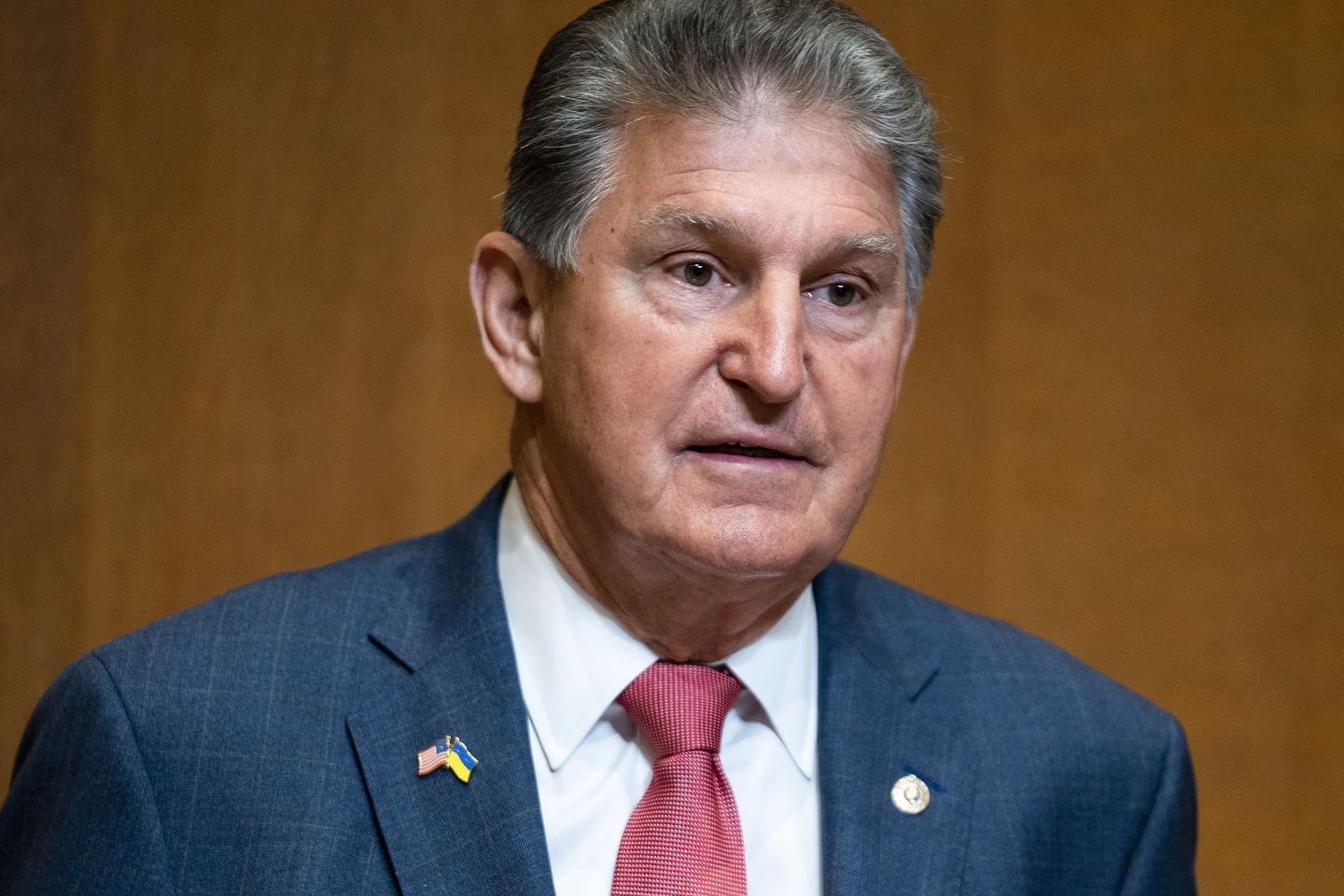Manchin still seeking a climate, energy deal but colleagues say it’s a pipe dream

A bipartisan coalition led by Sen. Joe Manchin III emerged from a closed-door meeting Wednesday evening saying they are inching toward a deal on an energy and climate package.
The optimism, however, was confined to those in the room.
Democrat and Republican lawmakers told The Washington Times that they remain highly doubtful that a viable bill will come to fruition, saying such a feat is next to impossible in the extremely polarized Congress just months before the midterm elections.
“I have very little confidence,” said Sen. Bernie Sanders of Vermont, a self-described democratic socialist who caucuses with Democrats. “I don’t think there are very many Republicans — along with Manchin — who are serious about addressing the existential crisis that we face in terms of climate.”
Another far-left champion, Democratic Sen. Elizabeth Warren of Massachusetts, said she had a “large dose of skepticism” about Mr. Manchin’s efforts.
So too did Sen. Patrick Toomey, a Pennsylvania Republican who has played a major role in crafting bipartisan deals in the past.
“I’m deeply skeptical that we’re going to get to something that would make sense that I could support,” said Mr. Toomey, who is retiring at the end of the year.
Negotiators have a difficult tightrope to walk: appease Democrats who want sweeping measures to curb climate-changing emissions and offset enough of the costs to win over at least 10 Senate Republicans to break a filibuster.
Republican and Democratic leaders have yet to get involved in the bipartisan discussions because of cynicism that an agreement will emerge. Nevertheless, Mr. Manchin and his group are out to prove them wrong.
The group’s meeting Wednesday was their third in the past two weeks, with 10 Democrats and five Republicans involved in the talks.
Their ultimate goal is to hammer out a compromise to address the energy and climate needs of the country in the aftermath of the Biden administration’s environmental agenda failing to pass and a supply crunch that has caused energy prices to spike.
Still, Mr. Manchin and his group are about the only ones on Capitol Hill holding their breath for a breakthrough deal, which they say would likely need to come within the next month. The lawmakers so far focusing on broad ideas that could have bipartisan appeal.
“We’re going to try to make sure that we have energy independence for our country,” Mr. Manchin said following the meeting. “We’re looking at everything we can.”
The latest meeting centered on how to use energy- and climate-related tax credits that have been proposed in previous unsuccessful legislation to slash global warming emissions cost-effectively, according to several attending lawmakers who later spoke with reporters. Options included subsidies for things like carbon-cutting technologies such as electric vehicles and efficient buildings, in addition to carbon capture.
Sen. Kevin Cramer, North Dakota Republican, said the laundry list of tax proposals they went over “reads like what Santa would look at.”
At previous get-togethers, the lawmakers discussed items such as carbon border adjustment, a trade policy that levies environmental charges on imports from other countries; increasing the production and processing of critical minerals often used for clean energy like electric vehicle batteries, and reforming the benchmark environmental law known as the National Environmental Policy Act (NEPA) that requires federal agencies to first consider the environmental ramifications of projects.
Republicans are especially eyeing NEPA permitting reform to ease bureaucratic red tape for energy projects — clean energy and fossil fuel alike — to receive quicker approval.
Separate from the bipartisan talks, Democrats also want to include some climate funding in a fast-track budget process called reconciliation that can pass if all Senate Democrats get behind it. Mr. Manchin has said that all options are on the table, but his rejection of Mr. Biden’s $1.7 trillion climate and social spending plan just months ago is still fresh in the minds of his Democratic colleagues.
The bipartisan avenue may be the party’s best and only chance at advancing any climate policies, despite their control of Washington. Republicans involved in the discussions have tried to offer reassurance that the GOP is interested in tackling environmental issues.
“Every meeting makes me feel a little more like we might get there, like something could be done,” Mr. Cramer said.
[ad_2]
Share this news on your Fb,Twitter and Whatsapp
Times News Network:Latest News Headlines
Times News Network||Health||New York||USA News||Technology||World News